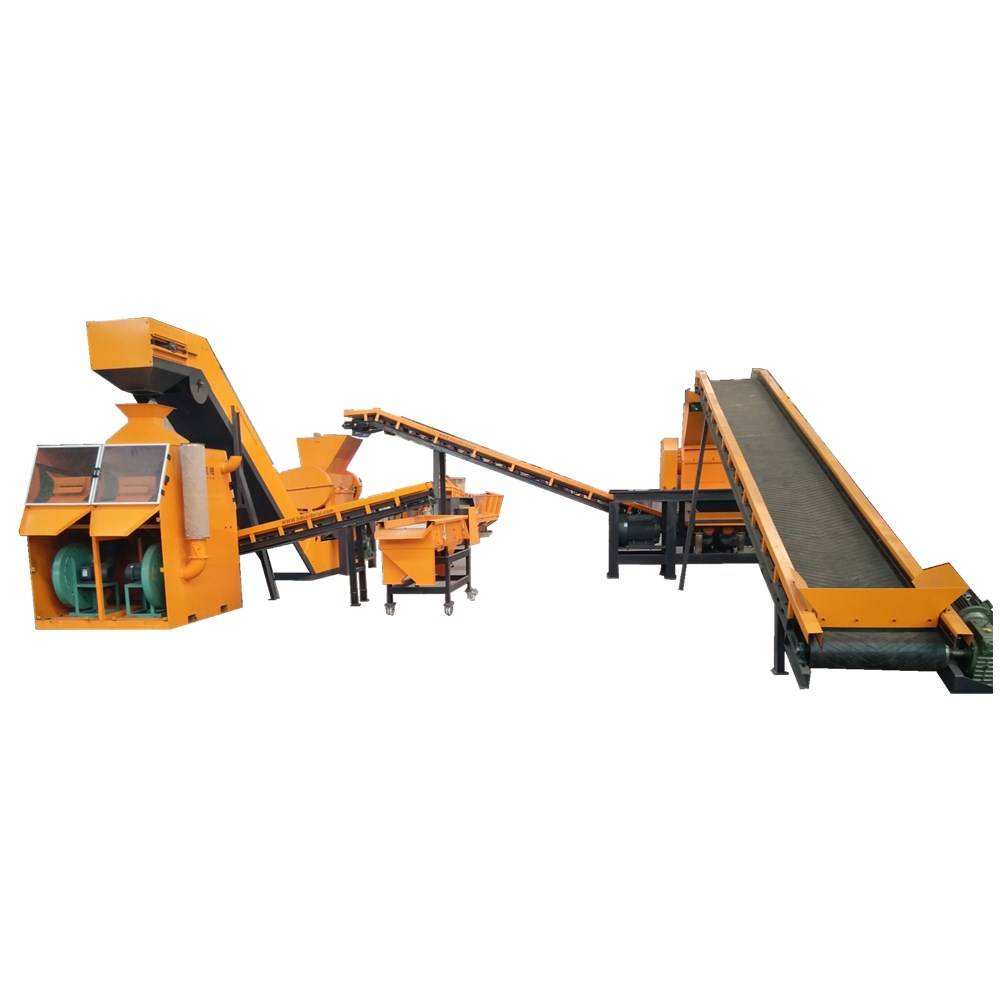
12 月 . 04, 2024 10:18 Back to list
How Does an Eddy Current Separator Work?
An Eddy Current Separator (ECS) is a specialized piece of equipment used in the recycling and waste management industry to separate non-ferrous metals from other materials, such as plastics and glass. This technology provides an efficient, environmentally friendly solution for recovering valuable metals, thus reducing the amount of waste sent to landfills. Understanding how an Eddy Current Separator functions can shed light on its significance and application in modern industry.
The Principle Behind Eddy Currents
Eddy currents are loops of electrical current induced within conductors by a changing magnetic field. When a conductive material, such as aluminum or copper, passes through a magnetic field, it experiences a change in flux. According to Faraday's law of electromagnetic induction, this change causes eddy currents to flow within the material. These currents create their own magnetic fields which interact with the original magnetic field, resulting in a repulsive force that can push the conductive material away from the other non-conductive materials.
Key Components of an Eddy Current Separator
An Eddy Current Separator typically consists of the following main components
1. Magnetic Rotor The rotor is usually equipped with powerful permanent magnets that create a strong magnetic field. As the rotor spins, it generates alternating magnetic fields that induce eddy currents in the conductive materials passing through.
2. Conveyor Belt A conveyor belt transports the material mixture towards the rotor. The design ensures that the non-ferrous metals are separated from other materials effectively.
3. Discharge Zones After the interaction with the magnetic rotor, the materials further down the line enter discharge zones where they are sorted into different categories. The non-ferrous metals are ejected away from the belt, while the remaining materials continue onward for additional processing.
Operation Process

The operation of an Eddy Current Separator can be broken down into several stages
1. Material Feeding The mixed material, which may contain both ferrous and non-ferrous metals along with plastics, is fed onto the conveyor belt.
2. Entry into the Magnetic Field As the conveyor belt moves, the materials approach the rotating magnetic rotor. The powerful magnetic field penetrates the materials, with non-ferrous metals experiencing a significant change in magnetic flux.
3. Induction of Eddy Currents Upon entering the magnetic field, non-ferrous metals induce eddy currents. These currents generate an opposing magnetic field, leading to the formation of a repulsive force that acts upon the metals.
4. Separation The repulsive force causes the non-ferrous metals to be ejected away from the conveyor belt into a separate chute, while the non-conductive materials, such as plastics and glass, continue along the conveyor.
5. Collection The separated non-ferrous metals are collected in designated areas, ready for further sorting or recycling.
Applications and Benefits
Eddy Current Separators are widely used in various industries, including recycling, mining, and waste management. They are particularly beneficial in processing electronic waste, where valuable metals can be recovered while effectively separating them from harmful materials. The technology’s ability to handle large volumes of material and its efficiency in metal recovery make it an invaluable asset.
In conclusion, Eddy Current Separators represent a significant advancement in recycling technology, allowing for the effective separation of non-ferrous metals from other materials. Their operation relies on the principles of electromagnetic induction, which enables the efficient retrieval of valuable resources while minimizing environmental impact. As the demand for recycling increases, so too does the relevance of technologies like Eddy Current Separators in driving sustainable practices in industry.
Latest news
Unveiling the Power of Eddy Current Separator
NewsSep.25,2024
Transform Your Home Recyclin:home metal shredder
NewsSep.25,2024
The Future of Waste Management with Recycling Line Picker
NewsSep.25,2024
The Benefits of a Metal Recycling Plant
NewsSep.25,2024
Revolutionize Material Separation with Onwang Technology
NewsSep.25,2024
Innovative Waste Management: Unveiling the MSW Sorting Plant
NewsSep.25,2024